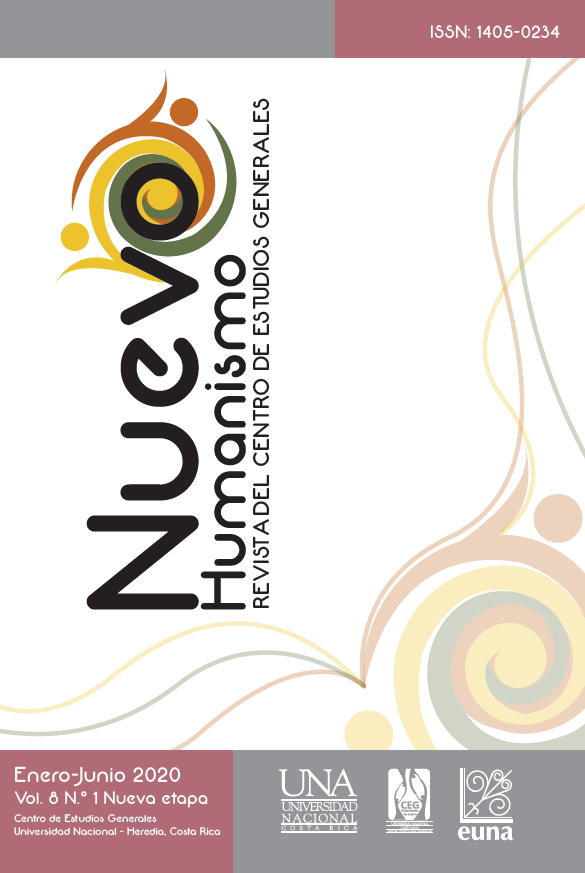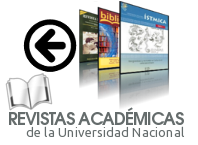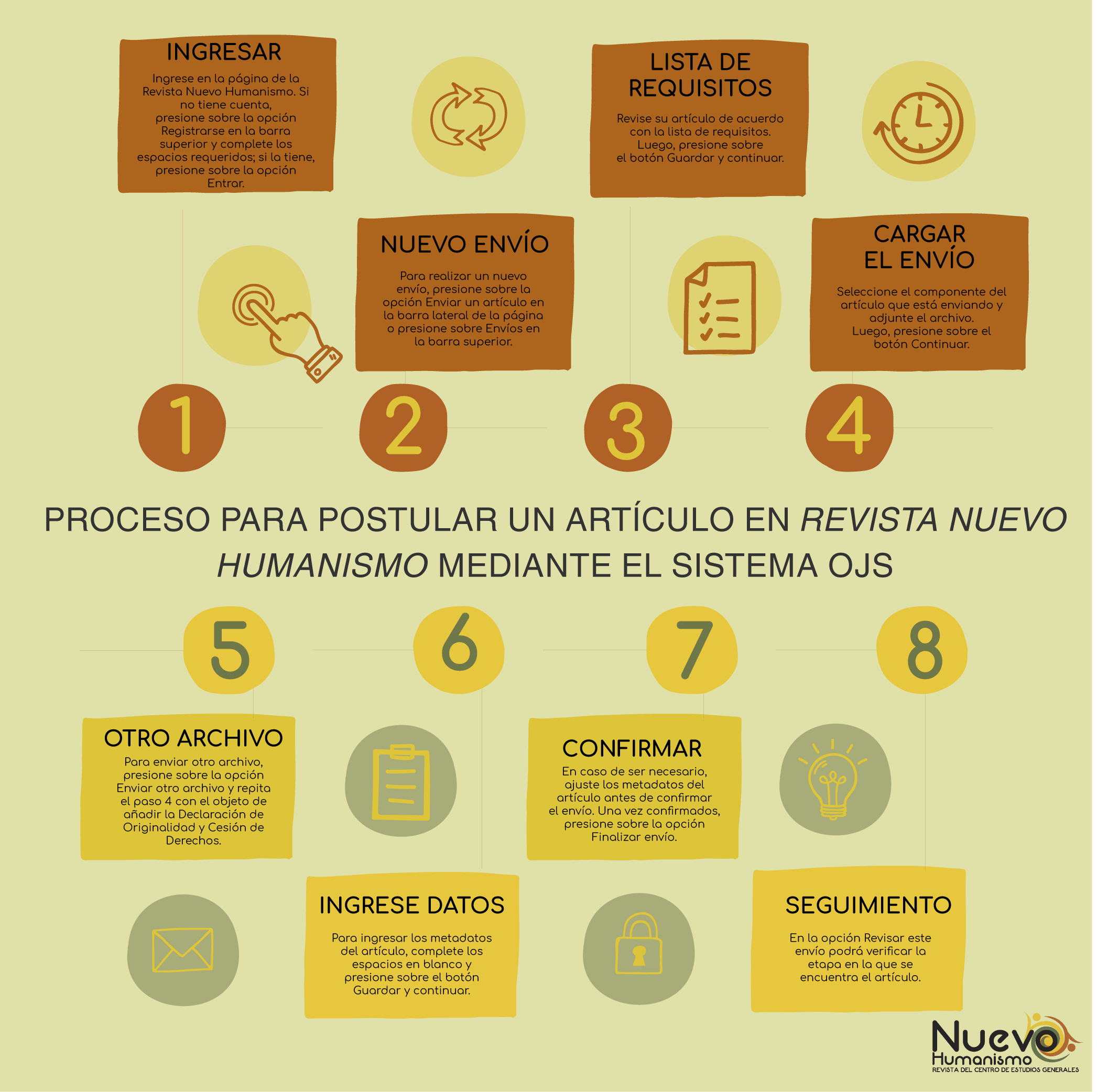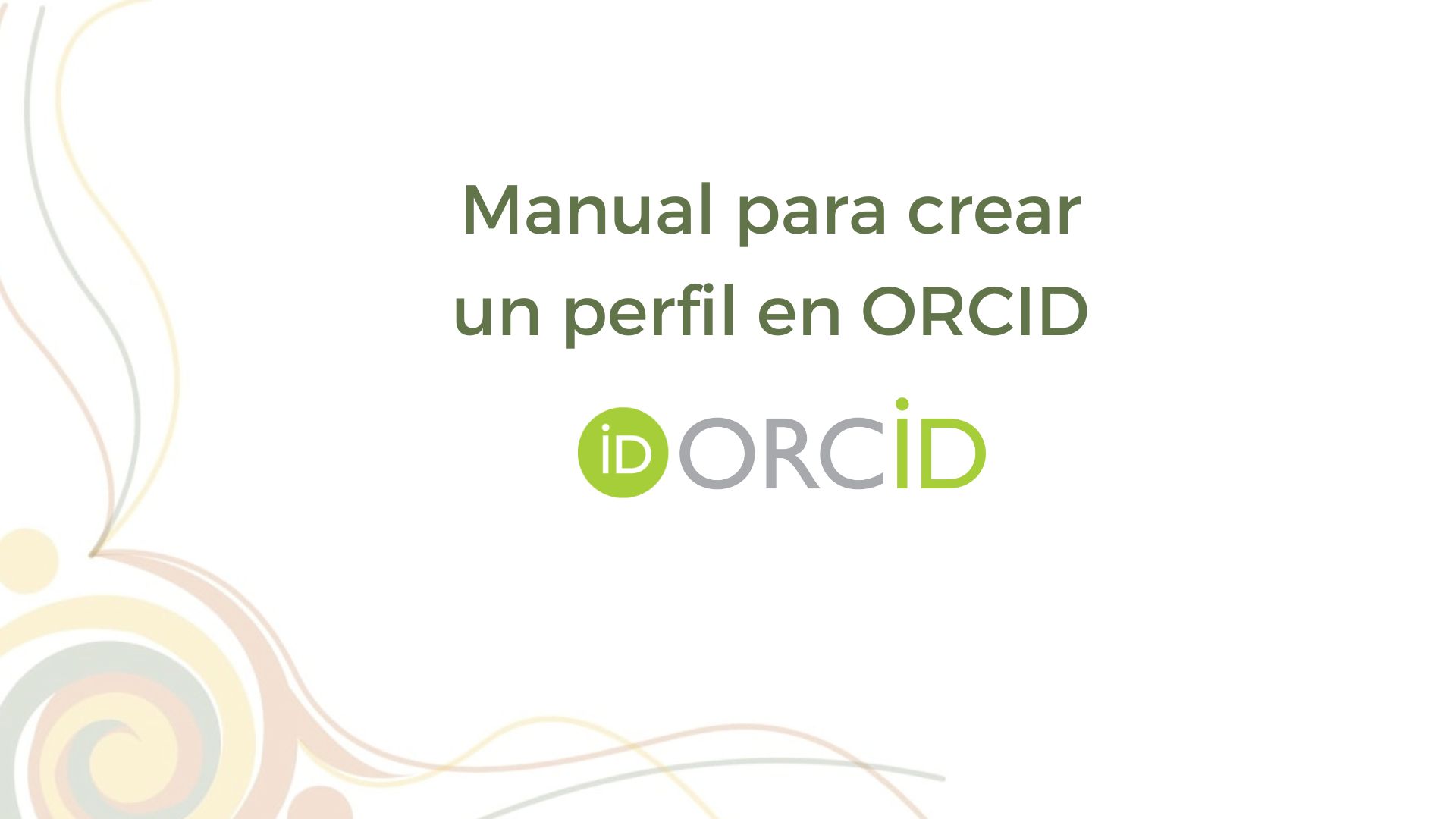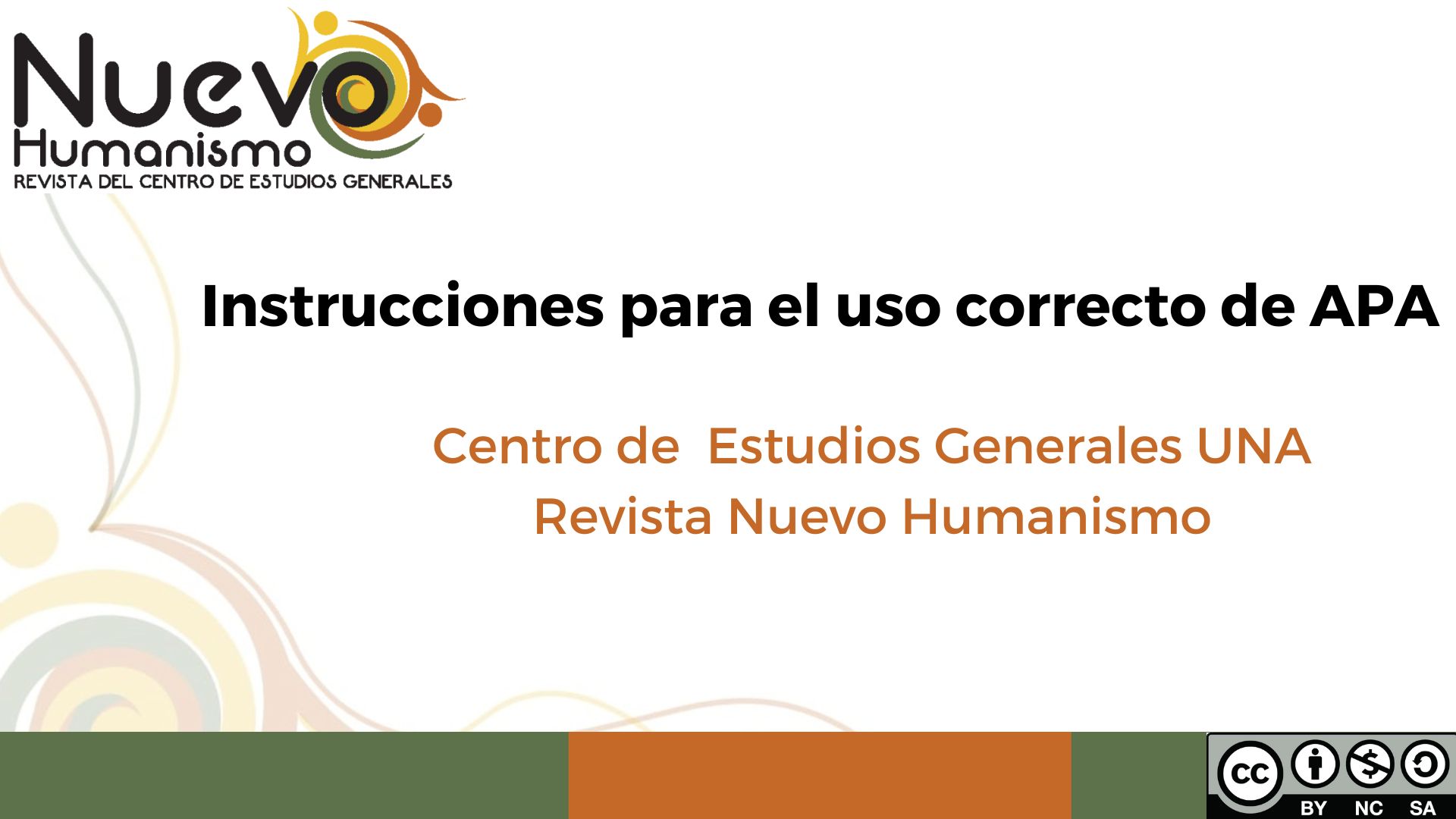Linguistic, Sociocultural Constructivism as a Founding Pedagogical Theory for General Studies
DOI:
https://doi.org/10.15359/rnh.8-1.4Keywords:
Linguistic, sociocultural constructivism, General Studies, semiotic resources, horizontal relationship, languageAbstract
This article aims to highlight and analyze some characteristics of constructivism and General Studies to build conceptual bridges and methodological encounters between them. It also aims to generate reflection that allows identifying, specifically, the benefits of linguistic, sociocultural constructivism as an appropriate theoretical foundation for General Studies epistemology, whose purpose is to develop ethical citizens, with critical thinking, and sense of the common good, among other characteristics. A horizontal relationship that General Studies proposed and a student-teacher bond, which allows recognizing oneself and others as persons, cannot be founded upon any pedagogical theory. Therefore, it is possible to create bonds with this form of constructivism, in which the process of teaching and learning implies joint activities between students and teachers and occurs around contents and teaching actions through the structuring of those activities and the semiotic resources present in the speech of people involved. Finally, a parallel can be established between linguistic, sociocultural constructivism and General Studies, as long as a position is adopted for the conception of learning to be superseded from disciplines independently, prioritizing, at the same time, the means with which knowledge is built, i.e., language, in addition to other similarities that lead to considering that position to be worthy of being taken into account as a founding theory for teaching practice in General Studies.
References
Carrera, B. y Mazzarella, C. (2001). Vygotsky: Enfoque sociocultural. Educere, 5(13). Recuperado de: https://www.redalyc.org/articulo.oa?id=356/35601309.
Castro, A., Colpas, E., Barnett, R., Roa, A. Cabrera, K… Rodrigo Tomás del Valle Martín et al. (2018). Reflexiones sobre los estudios generales en la educación superior uninorte. Universidad del Norte. http://manglar.uninorte.edu.co/bitstream/handle/10584/7888/9789587418750%20eReflexiones%20sobre%20estudios%20en%20Educaci%C3%B3n%20Superior.pdf?sequence=1&isAllowed=y
Coll, C. (1996). Constructivismo y educación escolar: Ni hablamos siempre de lo mismo ni lo hacemos siempre desde la misma perspectiva epistemológica. Anuario de Psicología, 69. 154-178.
Coll, C. (1990). Constructivismo y educación: La concepción constructivista de la enseñanza y el aprendizaje. En Psicología de la educación escolar (pp. 157-186). Alianza.
Coll, C., y Onrubia, J. (2001). Estrategias discursivas y recursos semióticos en la construcción de sistemas de significados compartidos entre profesor y alumno. Revista Investigación en la Escuela, 45, 21-31.
Coll, C., Mauri, T., y Onrubia, J. (2008). Ayudar a aprender en contextos educativos: El ejercicio de la influencia educativa y el análisis de la enseñanza. Revista de Educación, 346, 33-70.
Córdoba, M., y Vélez, W. (2017). Evaluación del papel de los intercambios de docentes de estudios generales para la formación integral del estudiante. Ciencia y Sociedad, 42(2), 39-52.
Damasio, A. (2010). Y el cerebro creó al hombre. Ediciones Destino.
Gutiérrez, M. (2004). Desarrollo cognitivo y educación. Universidad de Manizales
Rueda, M. (2009). In memoriam: Dr. Pablo Latapí Sarre (1927-2009). Perfiles educativos, 31(125), 3-6. Recuperado de: http://www.scielo.org.mx/scielo.php?script=sci_arttext&pid=S0185-26982009000300001&lng=es&tlng=es.
Piaget, J. (1964). Seis estudios de psicología. Editorial Labor.
Rodríguez, J. (2011). El papel de los estudios generales en los estudios universitarios contemporáneos. Estudios, 9(97), 19-38
Serrano, J. M. y Pons, R. M. (2011). El constructivismo hoy: Enfoques constructivistas en educación. Revista Electrónica de Investigación Educativa, 13(1). http://redie.uabc.mx/vol13no1/contenido-serranopons.html
Tubino, F. (2011) La formación humanista para el desarrollo y el papel de los estudios generales en la educación universitaria. En Contexto y sentido de los estudios generales (pp. 79-108). Pontificia Universidad Católica del Perú.
Valencia, V. (2016). Dimensión emocional en la atribución de sentido al aprendizaje, en un entorno educativo universitario híbrido [Tesis de posgrado]. Universidad Tecnológica de Pereira.
Vélez, W. (2011). Una educación general transdisciplinaria para el fortalecimiento de la Universidad. Revista Umbral, 69, 5-32.
Vélez, W. (2014). Pertinencia de los estudios generales en los currículos universitarios en el siglo XXI. Seminario Internacional de Estudios Generales.
Vygotsky, L. (1989a). El desarrollo de los procesos psicológicos superiores. Critica.
Vygotsky, L. (1995). Pensamiento y Lenguaje. Paidós.
Wertsch, J. (1985). Introduction. En Wertsch, J. (1985). Culture, communication and cognition: Vygotskyan perspectives. Cambridge University Press.
Wertsch, J. (1991). Voces de la mente. Aprendizaje/ Visor.

